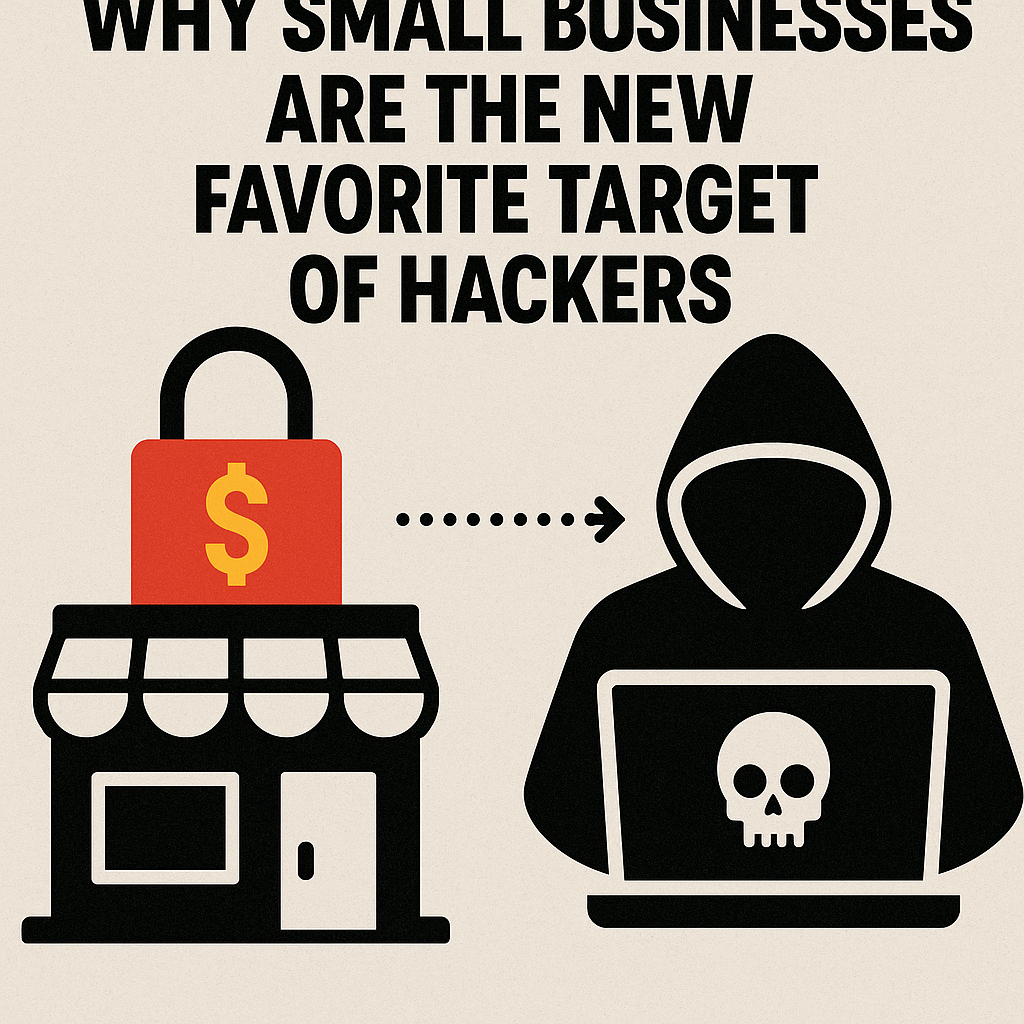How Secure Are Your Servers Against Next-Gen Cyber Threats?

In the fast-paced digital era, server security is a fundamental concern for businesses of all sizes. With the increasing sophistication of cyberattacks, companies must assess how well-protected their servers are against next-gen cyber threats. These threats, leveraging advanced tactics like artificial intelligence (AI), machine learning (ML), and zero-day vulnerabilities, target critical business infrastructure to steal sensitive data, disrupt operations, or hold systems hostage for ransom.
To stay ahead of the curve, businesses must adopt reliable server solutions, modernize their server management services, and embrace the latest trends in client-server technology. This comprehensive guide explores server vulnerabilities, the importance of robust security measures, and how outsourcing server management can be a game-changer.
Understanding Next-Gen Cyber Threats
Next-gen cyber threats refer to highly advanced and evolving methods that exploit vulnerabilities in server architecture. Unlike traditional attacks, these threats adapt dynamically, employing AI and ML to bypass security protocols. Some characteristics of next-gen threats include:
- Automation: Malware powered by AI can execute large-scale attacks autonomously.
- Targeted Attacks: Focused on high-value targets, such as company servers storing critical business or customer data.
- Multi-Vector Techniques: Use of multiple entry points like phishing emails, outdated plugins, and unsecured APIs to infiltrate systems.
The Importance of Securing Business Servers
Servers are the backbone of an organization’s IT infrastructure. They store sensitive data, run business-critical applications, and support client-server interactions. A security breach can disrupt operations, damage your reputation, and incur significant financial losses.
Business Risks of Inadequate Server Security
- Data Breaches: Sensitive customer and business data can be stolen and sold on the dark web.
- Downtime: Disrupted operations due to ransomware or DDoS attacks can result in substantial revenue loss.
- Non-Compliance Penalties: Failure to meet cybersecurity regulations can lead to fines or legal action.
Common Cyber Threats Targeting Servers
1. Ransomware-as-a-Service (RaaS)
Cybercriminals offer RaaS platforms, allowing non-technical users to launch ransomware attacks. These attacks encrypt server data, demanding payment for decryption keys.
2. Zero-Day Vulnerabilities
Exploiting unknown software flaws, zero-day attacks are highly dangerous. Outsourced server management ensures patches are applied promptly to mitigate these risks.
3. Distributed Denial-of-Service (DDoS) Attacks
DDoS attacks flood servers with traffic, rendering them inaccessible. Proactive server management services detect and block such attempts before they escalate.
4. Advanced Persistent Threats (APTs)
These stealthy, long-term attacks aim to steal sensitive data or disrupt services over time.
Challenges in Traditional Server Management
Traditional server management often relies on manual processes and outdated tools, which are insufficient against modern threats. Common issues include:
- Inconsistent Updates: Missing critical updates and patches leaves servers vulnerable.
- Limited Monitoring: Without 24/7 oversight, businesses may fail to detect threats in real time.
- Reactive Measures: Traditional approaches often focus on damage control after a breach.
Proactive Server Management: The Modern Approach
Proactive server management involves continuous monitoring, timely updates, and advanced threat detection. It minimizes risks by addressing vulnerabilities before they are exploited. Core elements include:
- Regular Security Audits: Identifying and fixing weaknesses in server configurations.
- Real-Time Monitoring: Using AI to detect and neutralize threats instantly.
- Backup and Recovery Plans: Ensuring business continuity in case of an attack.
Benefits of Outsourced Server Management
Outsourcing server management to experts ensures your servers are in capable hands. Companies offering server support services provide comprehensive solutions, including:
- Outsourced Server Monitoring: Real-time tracking of server health and performance.
- Outsourced Server Support: Quick resolution of issues by skilled professionals.
- Server Maintenance Outsourcing: Regular updates, patches, and hardware maintenance.
By partnering with a server management company, businesses save time, reduce costs, and enhance security.
Key Features of Reliable Server Solutions
When choosing reliable server solutions, look for the following features:
- Scalability: Servers that grow with your business needs.
- Robust Security Measures: Firewalls, encryption, and advanced threat detection.
- High Uptime Guarantees: Minimal downtime ensures uninterrupted operations.
Embracing the Latest Trends in Client-Server Technology
Cloud-Based Servers
Cloud computing offers enhanced flexibility, scalability, and security compared to traditional on-premises servers.
AI Integration
AI-driven analytics enhance threat detection and automate routine server management tasks.
End-to-End Encryption
Modern client-server technology prioritizes data protection through advanced encryption methods.
Role of Professional Server Support in Cybersecurity
Professional server support services ensure your servers are always optimized and protected. Services include:
- Threat Detection: Identifying and neutralizing potential cyberattacks.
- Performance Optimization: Ensuring servers operate at peak efficiency.
- Compliance Management: Helping businesses adhere to global cybersecurity regulations.
SQL Server 2025 and Security Enhancements
SQL Server 2025 introduces groundbreaking features, such as enhanced data encryption, predictive analytics, and integration with AI-driven monitoring tools. Businesses adopting this technology must ensure proper configuration and maintenance to maximize security benefits.
Outsourcing Server Monitoring: Why It Matters
Advantages of Outsourced Server Monitoring
- Cost Efficiency: Reduces the need for in-house IT teams.
- Expert Oversight: Access to skilled professionals who specialize in server management.
- 24/7 Monitoring: Ensures threats are detected and addressed instantly.
Server Financing: Balancing Security and Costs
Investing in scalable servers can be costly. Server financing helps businesses afford advanced solutions while maintaining cash flow. Combining financing with outsourced server support ensures a secure, cost-effective infrastructure.
FAQs
1. How do reliable server solutions enhance security?
Reliable server solutions are designed to provide comprehensive protection against a wide range of threats by incorporating advanced features that ensure your data and systems are safe from cyberattacks. Here’s how they enhance security in detail:
- Advanced Threat Detection: Modern server solutions utilize AI and machine learning to identify unusual activity or potential threats in real-time. For instance, if an unauthorized user tries to access the server, the system can detect and block the attempt immediately.
- End-to-End Encryption: Reliable servers encrypt data both at rest and in transit, ensuring that sensitive information cannot be intercepted or read by unauthorized entities.
- Regular Security Updates: Server providers typically roll out frequent updates to patch vulnerabilities, keeping systems secure from emerging threats like zero-day exploits.
- Scalability with Security: As your business grows and server capacity expands, reliable solutions ensure that security protocols scale proportionally, preventing potential gaps in protection.
By offering these features, reliable server solutions minimize the risks associated with data breaches, ransomware, and other cyber threats.
2. Why is outsourcing server management a smart move?
Outsourcing server management involves hiring a server management company to handle all aspects of server operation, maintenance, and security. This approach provides several key advantages:
- Expertise: Server management companies have skilled professionals with extensive experience in handling complex server environments. Their expertise ensures that your servers are optimized and secure.
- 24/7 Monitoring: Outsourced server management services include around-the-clock monitoring, allowing for the immediate detection and resolution of issues. This proactive approach significantly reduces downtime and prevents security breaches.
- Cost-Effective: Maintaining an in-house IT team for server management can be expensive, especially for small and medium-sized businesses. Outsourcing is a more affordable option, offering access to the same high-quality services at a fraction of the cost.
- Focus on Core Business Activities: By outsourcing server management, businesses can focus on their core operations, leaving the technical aspects to specialists.
- Compliance Management: Server management companies ensure that your servers adhere to industry regulations, protecting your business from legal risks and penalties.
Outsourcing offers a combination of cost savings, expertise, and reliability, making it a smart choice for companies looking to secure and optimize their servers.
3. What’s the significance of SQL Server 2025 in modern server technology?
SQL Server 2025 is the latest iteration of Microsoft’s SQL Server platform, offering cutting-edge features that cater to the growing needs of businesses. Here’s why it’s significant:
- Enhanced Security Features: SQL Server 2025 incorporates advanced encryption techniques, ensuring that data remains protected even in the event of a breach. It also includes built-in protection against SQL injection attacks, a common vulnerability in databases.
- Predictive Analytics: By leveraging AI and machine learning, SQL Server 2025 can predict potential system failures or performance bottlenecks, enabling proactive management.
- Scalability: The platform is designed to handle large volumes of data effortlessly, making it an ideal choice for growing businesses that rely on scalable servers.
- Improved Integration: SQL Server 2025 works seamlessly with cloud environments and other Microsoft services, allowing businesses to build robust and interconnected systems.
- Real-Time Insights: The platform supports real-time analytics, helping businesses make faster and more informed decisions.
By adopting SQL Server 2025, businesses can benefit from a secure, efficient, and future-ready database management system.
4. How do scalable servers benefit growing businesses?
Scalable servers are essential for businesses experiencing growth, as they adapt to increasing demands without compromising performance or security. Here’s how they help:
- Resource Flexibility: Scalable servers allow businesses to expand or reduce resources (e.g., CPU, RAM, and storage) based on current needs. This ensures optimal performance during peak times without overspending during periods of low demand.
- Cost-Effectiveness: Instead of investing in new infrastructure for every growth phase, scalable servers let businesses pay for only what they need. This is particularly beneficial for startups and small businesses.
- Future-Proofing: As technology evolves, scalable servers can be upgraded to incorporate the latest features and capabilities, ensuring long-term relevance.
- Improved User Experience: By handling increased traffic or workloads without downtime, scalable servers ensure seamless performance for customers and employees.
- Enhanced Security: Scaling often includes additional security layers, ensuring that as the server grows, so does its defense against cyber threats.
For growing businesses, scalable servers provide a robust foundation that supports expansion while maintaining efficiency and security.
5. Are outsourced server monitoring services affordable for small businesses?
Yes, outsourced server monitoring services are designed to be cost-effective and scalable, making them accessible to small businesses. Here’s why they are affordable:
- Pay-As-You-Go Models: Many providers offer flexible pricing based on the size and needs of the business. This allows small businesses to access high-quality monitoring without paying for unnecessary extras.
- Elimination of In-House Costs: Outsourcing removes the need for hiring and training an in-house IT team, which can be expensive.
- Preventing Costly Downtime: Regular monitoring helps identify and resolve issues before they escalate into major problems, saving businesses from the financial impact of prolonged downtime.
- Bundled Services: Outsourced providers often include monitoring, maintenance, and security in one package, offering better value for money.
- Shared Resources: Outsourced providers use shared infrastructure to serve multiple clients, reducing costs while maintaining efficiency.
By outsourcing server monitoring, small businesses can enjoy enterprise-grade services within a manageable budget.
6. How often should businesses conduct server security audits?
Conducting regular server security audits is essential for maintaining a secure IT environment. The recommended frequency depends on the nature of the business, but here are some general guidelines:
- Quarterly Audits: For most businesses, a security audit every three months ensures that vulnerabilities are identified and addressed promptly.
- After Major Updates: Whenever a server undergoes a significant update or configuration change, it’s crucial to perform an audit to ensure no new vulnerabilities were introduced.
- Following a Security Incident: If a breach or attempted attack occurs, an immediate audit helps identify the root cause and prevents future incidents.
- Annual Comprehensive Audits: A thorough, end-to-end review of all systems should be conducted at least once a year to align with compliance standards and ensure long-term security.
- Regulatory Requirements: Industries such as finance and healthcare may require audits at specific intervals to meet legal obligations.
Regular security audits help businesses stay one step ahead of cyber threats, ensuring that their servers remain secure and compliant.




No comment